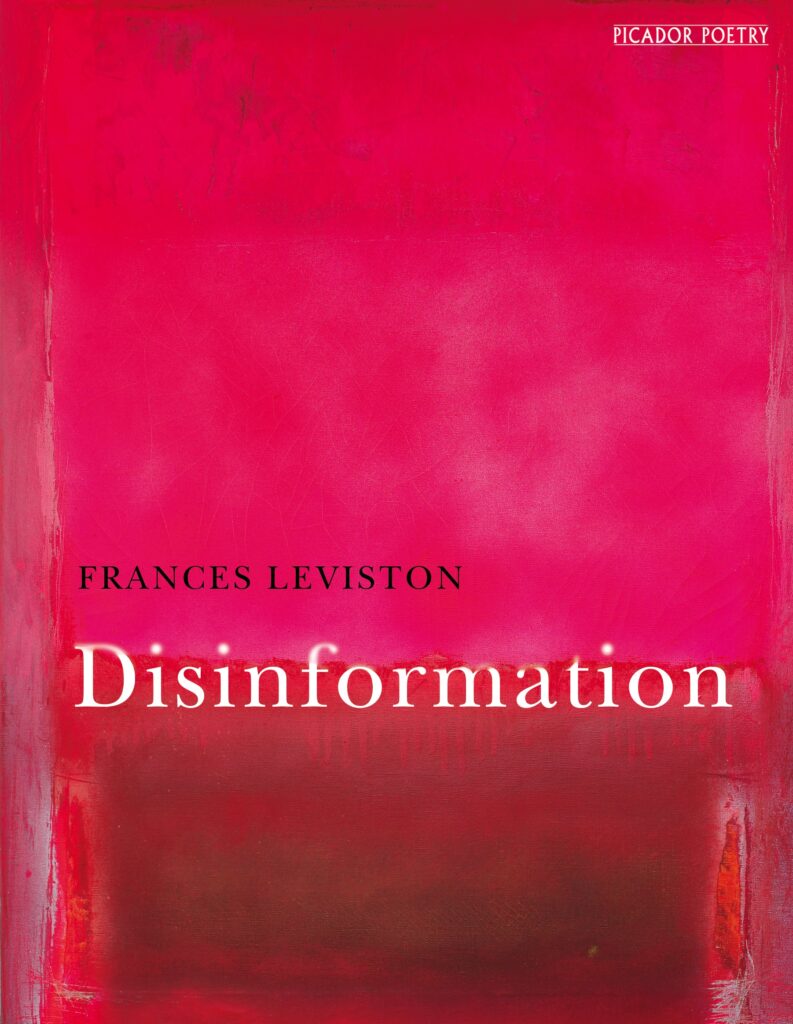
Frances Leviston’s first collection, Public Dream, was one of the most acclaimed debuts of recent years, and praised for combining ‘technical mastery with a lucidity that verges on the hypnotic’ (Independent).
Leviston’s keenly-anticipated second book sees both an intellectual and dramatic intensification of her project. We often credit poetry as a kind of truth-telling, but it can also be an agent and a vessel of disinformation: in the course of making its proofs and confessions, it also seeks to persuade and seduce by any means it can. Leviston uses both sides of poetry’s tongue to address one of the key questions of the age: how have we come to know what we think we know? In the title poem, a woman preparing for a child’s birthday party suddenly glimpses the invisible screen of false data behind which she lives – and her own complicity in its power. Many of these poems are concerned with ruined or abandoned structures, dismembered and disappearing bodies, constructed and deconstructed identities; behind them lie the false gods who manipulate the streams of information with which we must navigate the contemporary world. In Leviston’s inimitably vivid and vital language, Disinformation challenges us to rescue our idea of identity from that mass of glib truth and persistent falsehood – and proposes how we might begin to think of poetry itself as a means to that end.
Eight years in the making since her first volume… Disinformation does not disappoint. This is poetry of a rare seriousness and excellence. —Times Literary Supplement
Whatever form Leviston chooses… she achieves a sense of decisive cleanliness, the momentum of the verse matching the steady completeness of her attention and then shifting gear at need. […T]he scope and seriousness of the book mean it should be warmly welcomed. — The Guardian
Frances Leviston’s second collection of poems… displays a most beguiling voice, deeply thoughtful, varied in tone from innocent to sharp, and ending with an urgent series of questions about where our stories are taking us. — Marina Warner, TLS Books of the Year
[T]he sound of a sophisticated poet asserting her independence… This is writing that will endure. — Sunday Times
The two individual poetry books that I returned to most often for the precise, scalpel-like sophistication of their technique – by which a steely knowledge of the world was revealed just below a limpid surface of anecdotal language – were Frances Leviston’s Disinformation and Claudia Rankine’s Citizen. – Jeremy Noel-Tod. Times Literary Supplement Books of the Year, 2015.
Frances Leviston’s Disinformation is so good it makes one nervous. –Poetry London
Leviston, like Elizabeth Bishop, whose influence is acknowledged directly in the poem ‘Bishop in Louisiana’, is brilliant – almost claustrophobically so – at the precise unfolding of a probing consciousness on the page. – Poetry Review
Disinformation’s central section, a series of poems in which the wisdom of the goddesses of antiquity are both ‘resisting capture’ and dissolving in the contemporary world, is as serious a feminist critique as Adrienne Rich’s early, wonderful Diving into the Wreck. —Poetry Ireland Review
